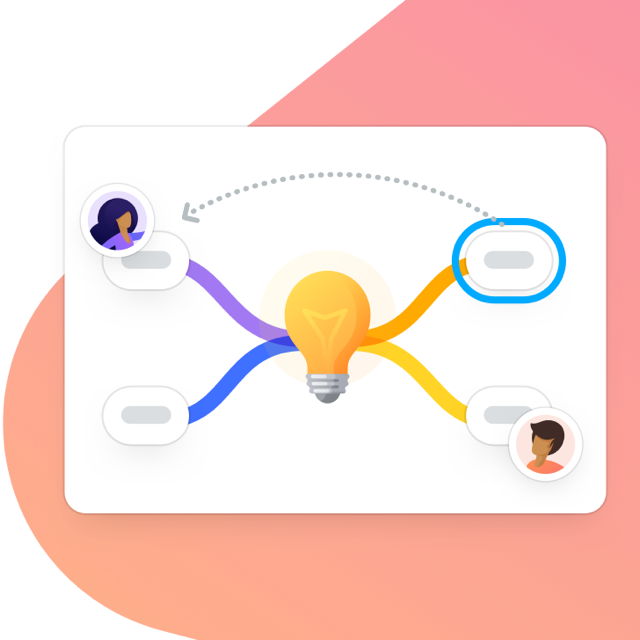Who doesn’t know the feeling: You need to come up with a great idea, solve a finicky problem or create an inspired design, but your creativity seems to have gone on vacation — without you. Everyone faces this problem at some point, which is why we’ve put together a list of six simple ways to improve your creativity, which should help you get unstuck in no time. Take a look!

1. Try working in a coffee shop or restaurant
A study from 2012 has found that a moderate level of ambient noise, which can be found in a coffee shop, quiet bar or restaurant, for instance, enhances performance on creative tasks.
The researchers theorize that “a moderate (vs. low) level of ambient noise is likely to induce processing disfluency or processing difficulty, which activates abstract cognition and consequently enhances creative performance.”
2. Give yourself time to daydream
A study conducted by a group of American and Canadian researchers in 2009 has found that letting your mind wander may evoke a unique mental state that allows your brain to come up with more creative ideas. Letting your mind wander is often not a conscious choice, it simply happens while you’re going through menial tasks such as weeding, showering or washing the dishes. The effect it has on your creativity also seems to depend on your being unaware that you are, in fact, daydreaming.
3. Take a walk
A recent Stanford study has found that walking is a great way to improve creativity. It’s not about the change of scenery, though, so it doesn’t matter whether you walk on a treadmill in your office or on a nice path through the forest. According to the study, “Walking opens up the free flow of ideas, and it is a simple and robust solution to the goals of increasing creativity and increasing physical activity.”
4. Pretend to be someone else, somewhere else
Various studies1 have found evidence that we get better at creative problem solving when the problem is removed from us through something they call psychological distance. You can create psychological distance by projecting the problem into the distant future, by imagining it to originate in a place far away, or by pretending that the person experiencing the problem isn’t you, but somebody else entirely.
5. Use a mind map to find new ideas by association
When it comes to developing creative ideas, mind mapping is one of the most well-known techniques today. Research has found mind maps to be helpful when it comes to curing writer’s block2 and creative problem-solving3, as well as generating, visualizing and organizing ideas4. Their radiant structure enables you to develop new ideas by association and add them anywhere on the map. Additionally, they offer a visual overview of a topic that can help you see connections between ideas you might have missed otherwise.
Discover mind mapping!
Get Started!6. Collaborate with friends or colleagues
In her book “Creative Collaboration” Dr. Vera John-Steiner finds that “humans come into being and mature in relation to others, new skills are acquired, participants develop previously unknown aspects of themselves, and they increase their repertory of cognitive and emotional expression.” She concludes that “social interactions are crucial,” because “they provide a non-judgmental ear for emerging ideas.”
tl;dr
Next time you have a problem that requires a creative solution, grab your laptop and a colleague and head to the next coffee shop. Project your problem into another, far-away time or place, then open your mind map app and start scribbling down ideas. If that doesn’t work, go for a walk or start a menial task such as washing the dishes, and simply let your mind wander. Use a mobile app to capture your flashes of genius in a mind map where you can later expand them further.
Have you tried any of these techniques to improve your creativity? Share your experiences in the comments below!
1. http://www.indiana.edu/~hirtlab/docs/publications/Jiaetal2009jesp.pdf and http://www.socolab.de/content/files/Jens%20pubs/foerster_friedman_liberman2004.pdf
2. Joyce Wycoff (1986: 59) 3. Vasilije Kokotovich, University of Technology, Sydney, Faculty of Design Architecture & Building, P.O. Box 123, Broadway, NSW 2007, Australia 4. Al-Jarf, R. (2009), ‘Enhancing Freshman students’ Writing Skills with a Mind Mapping software’. Paper presented at the 5th International Scientific Conference, eLearning and Software for Education, Bucharest, April 2009.Unleash Your Creativity with Mind Maps
Get Started
